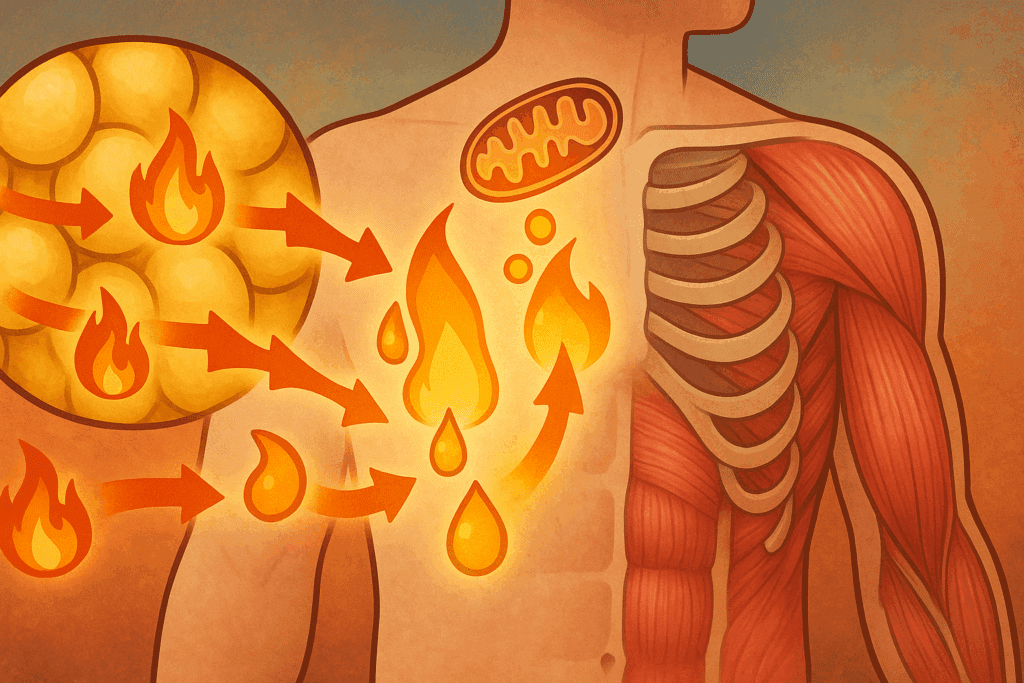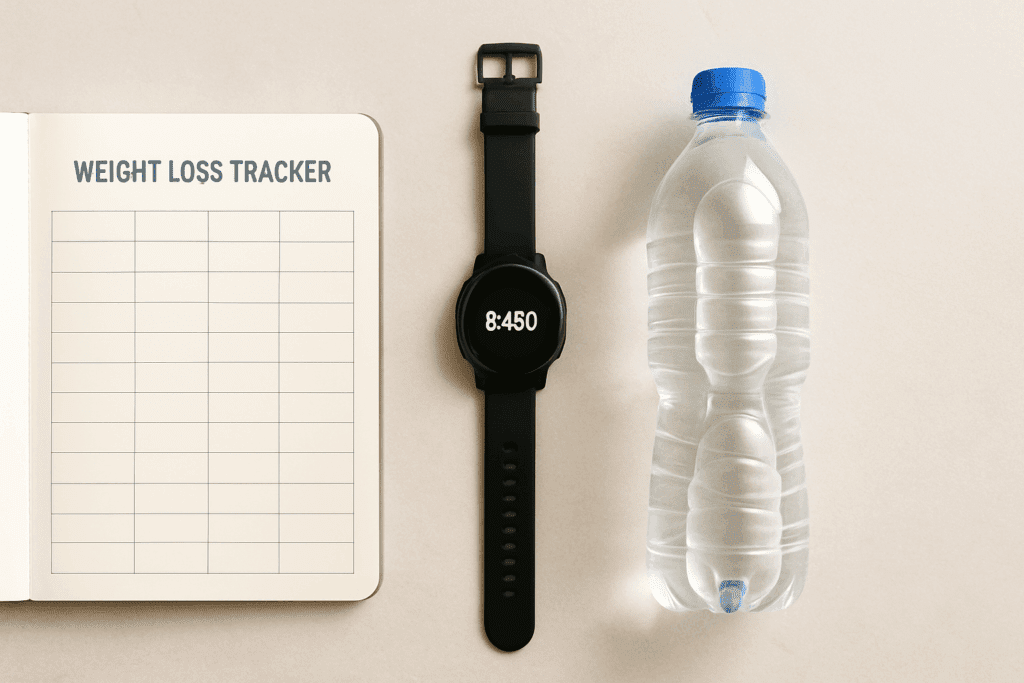Understanding Realistic Expectations: How Much Weight Can You Lose in 2 Weeks?
Weight loss is a deeply personal journey, and the question of how much weight can you lose in 2 weeks is one that many people ask when looking for fast but sustainable results. While dramatic transformations are often promoted on social media or in celebrity fitness stories, the reality of healthy and medically safe weight loss is more nuanced. According to physicians and registered dietitians, losing 1 to 2 pounds per week is considered both safe and sustainable. However, in the context of a structured 2 week weight loss program that includes dietary changes, increased physical activity, and hydration, it’s not uncommon for individuals to lose up to 5 pounds, and in some cases more—especially if they are starting from a higher weight or are reducing excessive water retention.
You may also like: Expert-Backed Weight Loss Tips for a Healthier Lifestyle: What You Need to Know for Long-Term Weight Control and Wellness
It’s important to note that weight loss during the first few days of any new regimen often involves the shedding of water weight. This is because when you reduce your intake of carbohydrates, your body releases glycogen stores, which hold water. As a result, someone asking how much weight can I lose in two weeks might see an initial drop of three or four pounds quite quickly, followed by a slower but steady reduction in fat mass if the program is maintained appropriately. These physiological mechanisms help explain why early weight loss may appear rapid, even when the program itself is moderate and health-focused.
Moreover, individual differences such as age, gender, metabolic rate, hormonal health, and existing physical activity levels all influence how much weight can you lose in 2 weeks. A younger individual with a high metabolic rate may see faster results than someone managing hypothyroidism or hormonal imbalances. While the question is valid and deserves a direct answer, it’s essential to view it through the lens of evidence-based medical practice, emphasizing the quality and sustainability of the weight loss over the sheer number on the scale.
Ultimately, the key is not just how quickly you can lose weight, but how well you can support your overall health while doing so. A rapid weight loss strategy that compromises nutrition, muscle mass, or hydration is counterproductive and potentially harmful. A safe 2 week weight loss program should always focus on balanced eating, consistent activity, and realistic outcomes backed by scientific evidence and clinical guidance.

The Physiology of Rapid Weight Loss: What Happens to Your Body in Two Weeks?
When exploring how much weight can I lose in two weeks, it’s essential to understand what’s actually happening in the body during that time. Rapid weight loss involves a complex interplay of systems, particularly energy balance, metabolism, and hormonal regulation. When you reduce calorie intake—whether through diet or exercise—your body begins to draw on its stored energy, primarily in the form of fat and glycogen. As glycogen is depleted, water bound to it is released, which explains the immediate drop in water weight experienced by many within the first few days.
In the following days, the body begins to tap into fat stores more actively, especially if you’re consuming adequate protein and limiting simple carbohydrates. However, if calories are drastically cut and protein intake is inadequate, the body may begin to catabolize muscle tissue to meet its energy needs. This is why professionally designed weight loss programs prioritize preserving lean muscle mass through strength training and adequate protein consumption. It’s not just about how can I lose weight in 2 weeks—it’s also about how to preserve muscle and protect metabolism.
Hormonal changes also occur during short-term weight loss efforts. Levels of insulin drop as carbohydrate intake is reduced, which can promote fat burning. At the same time, levels of ghrelin, the hunger hormone, tend to increase when caloric intake is significantly decreased. This can make it more challenging to maintain reduced food intake beyond the initial week, underscoring the importance of creating a plan that’s not only effective but also psychologically sustainable.
Another factor to consider is the potential decrease in resting metabolic rate (RMR). Studies show that extreme caloric deficits can prompt the body to slow down its metabolism as a protective response. For this reason, experts warn against crash diets, especially for those who are exploring a 2 week weight loss program with the intent of continuing weight reduction afterward. The goal is to lose weight without triggering a physiological state that makes future fat loss more difficult or leads to rapid regain.
Understanding these internal dynamics helps you make informed choices about your approach. Safe weight loss in a two-week timeframe doesn’t rely on gimmicks or starvation. Instead, it balances energy intake and output while protecting the body’s long-term health.

Designing a Doctor-Recommended 2 Week Weight Loss Program That Works
A scientifically sound and doctor-approved 2 week weight loss program involves much more than cutting calories. It must include strategic components such as nutrient density, physical activity, hydration, sleep hygiene, and stress management. When combined, these elements create a metabolic environment conducive to fat loss without compromising lean tissue or overall well-being.
Nutrition is the cornerstone of any weight loss effort. For those asking how can I lose weight in 2 weeks safely, the answer begins with a nutrient-dense, calorie-conscious meal plan that prioritizes whole foods. Vegetables, lean proteins, whole grains, and healthy fats should form the base of every meal. Sugary beverages, processed snacks, and fried foods must be minimized or eliminated to reduce caloric load without sacrificing satiety or nourishment. A daily intake of 1,200 to 1,500 calories for women and 1,500 to 1,800 for men often provides enough fuel for metabolic function while supporting fat loss, though exact numbers should be tailored to individual needs.
Equally important is physical activity. Incorporating both cardiovascular exercise and resistance training ensures that fat is burned efficiently while muscle mass is maintained. High-intensity interval training (HIIT) has been shown to be particularly effective for short-term weight loss, increasing caloric burn during and after exercise. Resistance training, on the other hand, helps preserve or even build muscle mass during a calorie deficit. Together, they contribute to a more robust metabolic rate, supporting sustained fat burning beyond the 2-week window.
Hydration also plays a subtle but significant role. Drinking sufficient water supports digestion, metabolism, and satiety. In fact, studies have shown that drinking a glass of water before meals can reduce overall calorie intake. Adequate sleep—usually seven to nine hours per night—is another often-overlooked factor. Poor sleep is associated with increased hunger and cravings, likely due to its impact on ghrelin and leptin levels. Lastly, stress management should not be underestimated. Chronic stress elevates cortisol, a hormone that promotes fat storage, particularly in the abdominal region.
When all of these variables are optimized, a 2 week weight loss program becomes a catalyst for real, measurable change—not just physically, but mentally and emotionally as well.

How Can I Lose Weight in 2 Weeks Without Sacrificing Health?
This question lies at the heart of every evidence-based weight loss plan: how can I lose weight in 2 weeks without putting my health at risk? The answer lies in strategic moderation and a whole-person approach. The key is to create a sustainable calorie deficit while still meeting your nutritional needs, supporting physical function, and preserving mental well-being.
Start by addressing portion sizes. Many people unknowingly consume more than they need by misjudging serving sizes or eating distractedly. Practicing mindful eating—where you pay close attention to your hunger and fullness cues—can help naturally regulate intake. This, paired with planning meals ahead of time, minimizes impulsive eating and keeps you aligned with your goals.
Choose foods with a high nutrient-to-calorie ratio. Leafy greens, lean meats, legumes, eggs, berries, nuts in moderation, and healthy oils provide essential vitamins and minerals while supporting satiety. Avoiding ultra-processed foods helps reduce sodium and sugar intake, which not only aids in weight loss but also reduces bloating—a frequent concern for those seeking fast results. The inclusion of fiber-rich foods, such as beans, lentils, oats, and vegetables, promotes digestive health and keeps you full for longer periods.
Exercise should be approached gradually and intentionally. While it’s tempting to jump into an aggressive fitness routine, overexertion can lead to fatigue, soreness, or even injury, which could derail your efforts. A mix of moderate-intensity cardio like brisk walking or cycling, along with bodyweight strength exercises, offers a well-rounded approach that accommodates both beginners and those returning to activity. Stretching and mobility work, often overlooked, are equally valuable in enhancing performance and preventing injury.
It’s also vital to avoid quick fixes like detox teas, extreme fasting, or unregulated diet pills. These can not only lead to nutritional deficiencies but also damage your metabolism in the long term. If supplements are used, they should be approved by a healthcare provider and used to complement, not replace, a balanced diet. The safest 2 week weight loss program is one that integrates evidence-based methods, respects your body’s limits, and focuses on long-term wellness over temporary appearance changes.

Tracking Progress and Staying Accountable During Your 2 Week Journey
Success during a 2 week weight loss program depends heavily on self-awareness and consistency. Tracking your progress—not just in terms of weight but also in habits and how you feel—can be incredibly motivating. While the number on the scale can fluctuate for various reasons, documenting your food intake, exercise sessions, hydration, and even sleep patterns offers a more comprehensive view of your progress.
Start with realistic goals that go beyond the scale. Instead of focusing solely on “how much weight can I lose in two weeks,” consider setting functional goals like preparing healthy meals at home five days a week or completing a workout routine four times within the timeframe. Celebrate the achievement of these habits, as they contribute significantly to your overall success.
Journaling can also be a powerful tool. By writing down what you eat, how you move, and how you feel each day, patterns begin to emerge. Maybe you sleep better on days when you exercise in the morning, or perhaps late-night snacking increases after a stressful day. These insights allow you to make real-time adjustments that support your goals.
If motivation wanes, consider finding an accountability partner—a friend, coach, or online community can provide encouragement and objective feedback. The structure and support can make the journey feel less isolating and more empowering. Additionally, using wearable fitness devices or apps to track steps, heart rate, and calories burned can create tangible benchmarks for improvement.
Ultimately, the journey of how much weight can you lose in 2 weeks is about much more than a number. It’s about developing discipline, learning to listen to your body, and cultivating habits that can continue beyond the two-week mark.

Final Thoughts: How to Make Your Two-Week Weight Loss Success Last
At the end of a successful two-week program, many people feel proud of the progress they’ve made. However, the ultimate challenge is not just reaching your goal but maintaining it. It’s common to see initial results, only to gradually return to old habits and regain lost weight. This cycle can be frustrating and demoralizing. That’s why it’s critical to treat a 2 week weight loss program not as a quick fix, but as a stepping stone toward lasting lifestyle change.
One of the most effective strategies for long-term success is habit integration. If you’ve started cooking more meals at home, make it part of your weekly routine. If you found enjoyment in your morning walks or evening yoga, find ways to keep those practices alive. The habits that help you lose weight are the same ones that help you maintain it—consistency is the real key to sustained results.
It’s also important to gradually increase your knowledge and skills around nutrition and fitness. Consider speaking with a registered dietitian to create a long-term eating plan tailored to your needs. Likewise, a certified personal trainer can help you progress safely from beginner workouts to more advanced routines. Investing in expert guidance can prevent setbacks and keep you motivated.
Finally, mindset is everything. Many people ask how can I lose weight in 2 weeks, but the deeper question is how can I live in a body I feel good in, long term? Reframing your goals around strength, energy, health markers, and self-confidence—rather than just pounds lost—creates a more fulfilling and resilient approach to wellness. Remember, weight loss is a process, not a destination. The habits you build in two weeks can be the foundation for a lifetime of well-being.
Frequently Asked Questions: Expert Insights Into Safe Two-Week Weight Loss Programs
1. What are some overlooked lifestyle habits that can improve results in a 2 week weight loss program?
Many people focus on diet and exercise alone, but subtle lifestyle factors can significantly affect how much weight you can lose in 2 weeks. One often-overlooked element is post-meal movement—even a 10-minute walk after meals can regulate blood sugar and improve digestion, which indirectly supports fat metabolism. Another key habit is reducing blue light exposure at night, which helps regulate melatonin and cortisol rhythms, both of which influence fat storage and hunger. Mindful breathing and stress-relief practices such as vagus nerve stimulation can reduce emotional eating triggers, which is crucial in short-term weight management. If you’re wondering how can I lose weight in 2 weeks more effectively, optimizing these seemingly minor routines can produce measurable improvements in both metabolic rate and consistency.
2. How does gut health impact how much weight you can lose in 2 weeks?
Gut health plays a surprising role in determining how much weight you can lose in 2 weeks, especially when short-term goals are combined with long-term metabolic balance. A diverse gut microbiome supports nutrient absorption, reduces inflammation, and influences hormones related to appetite regulation, such as ghrelin and leptin. In clinical studies, individuals with higher gut microbial diversity lost more fat when placed on a calorie-restricted diet. Adding prebiotic and probiotic-rich foods like kefir, sauerkraut, and chicory root can enhance microbial activity during your 2 week weight loss program. If you’re asking how can I lose weight in 2 weeks with lasting benefits, supporting gut integrity may be a game-changer.
3. Can intermittent fasting improve results in a 2 week weight loss program, and is it safe for everyone?
Intermittent fasting (IF) can help accelerate fat loss during a short-term program, but it isn’t universally appropriate. By limiting your eating window, IF may reduce overall calorie intake without requiring active restriction at each meal. Some people using time-restricted feeding (such as 16:8) report reduced cravings and better energy levels, which helps them stay consistent. However, those with diabetes, pregnant individuals, or those with a history of eating disorders should avoid fasting without medical supervision. If you’re researching how much weight can I lose in two weeks using fasting, remember that personalization and medical context are critical for safety and effectiveness.
4. Why do some people lose more weight than others in the same 2 week weight loss program?
Differences in weight loss results often come down to metabolic rate, hormonal health, and starting body composition. Individuals with more visceral fat tend to see faster initial reductions because that type of fat is more metabolically active. Moreover, variations in insulin sensitivity, thyroid function, and cortisol levels can influence fat burning, even if two people follow the same regimen. Sleep quality and previous dieting history also impact how efficiently the body sheds fat. So, when people ask how much weight can you lose in 2 weeks, the honest answer is—it depends on much more than just the plan you follow. Your internal health profile determines a lot.
5. Can men and women expect different results in a 2 week weight loss program?
Yes, men and women often experience weight loss at different rates, particularly in the early stages of a 2 week weight loss program. Men usually have more lean muscle mass, which gives them a metabolic edge and allows them to burn calories more efficiently. Women, on the other hand, may experience hormonal fluctuations that affect water retention, hunger, and fat distribution—especially during the luteal phase of the menstrual cycle. These physiological differences mean that how much weight can I lose in two weeks may vary depending on your sex, even with identical effort. Recognizing these differences allows for more personalized and realistic goal-setting.
6. How can emotional eating sabotage a 2 week weight loss program, and how can it be managed?
Emotional eating often operates beneath conscious awareness and can easily derail even the most carefully planned 2 week weight loss program. Stress, boredom, and anxiety trigger dopamine-seeking behavior, prompting people to reach for calorie-dense comfort foods. To counter this, it’s helpful to replace emotional eating cues with new habits—like journaling, stepping outside, or practicing a mindfulness technique when cravings arise. Incorporating cognitive-behavioral strategies or even brief therapy support can significantly improve your success if you’re seriously asking how can I lose weight in 2 weeks without falling back into self-sabotage. Developing emotional resilience is as important as tracking calories.
7. Are there specific supplements that can support a safe 2 week weight loss program?
While supplements are never a replacement for healthy eating and movement, certain clinically studied options may provide metabolic support during a short-term weight loss effort. Green tea extract, for example, contains catechins that can modestly enhance fat oxidation, especially when paired with exercise. Soluble fiber supplements like glucomannan can help with satiety and reduce overall calorie intake. Magnesium, often overlooked, supports sleep and insulin sensitivity, both of which are essential when asking how can I lose weight in 2 weeks without extreme measures. However, all supplements should be used with guidance from a registered dietitian or physician, especially if you’re on medication or have pre-existing conditions.
8. What role does meal timing play in how much weight you can lose in 2 weeks?
Meal timing can influence metabolic flexibility and insulin response, both of which impact how much weight you can lose in 2 weeks. Research suggests that eating earlier in the day and tapering off food intake at night aligns better with your circadian rhythm and may improve blood sugar regulation. Late-night eating, by contrast, is associated with higher cortisol levels and greater fat storage, particularly around the midsection. For those pursuing a structured 2 week weight loss program, front-loading calories around breakfast and lunch can enhance fat loss while maintaining energy and reducing cravings. It’s not just what you eat—but also when you eat—that matters in this short-term timeline.
9. What’s the best way to transition after completing a 2 week weight loss program to avoid regaining the weight?
The post-program phase is just as crucial as the program itself. One common mistake is reverting too quickly to old habits, especially after seeing short-term success. Instead, use the momentum to ease into a sustainable maintenance plan that keeps core behaviors—like meal prepping and regular activity—intact. Slowly reintroduce calories, ideally by increasing protein and fiber rather than sugars or refined carbs. If you’re wondering how much weight can I lose in two weeks and keep it off, the secret lies in creating a glide path from structured discipline to flexible lifestyle choices, not in ending the plan abruptly.
10. How can social and cultural influences affect weight loss outcomes during a 2 week plan?
Social environments often shape our eating and activity behaviors more than we realize. Family traditions, peer pressure, or shared meals with co-workers can challenge your ability to stay consistent with a 2 week weight loss program. Navigating these situations requires a combination of assertive communication and flexible strategy. For example, you might suggest alternative venues, bring your own dish to gatherings, or eat beforehand to reduce temptation. If you’re seriously exploring how can I lose weight in 2 weeks without isolating yourself, learning to set boundaries while preserving your social life is a crucial skill. Long-term success thrives where health goals and social wellness intersect.
Conclusion: How Much Weight Can You Lose in 2 Weeks? Why Safe, Doctor-Recommended Programs Matter Most
In answering the question of how much weight can you lose in 2 weeks, it becomes clear that the best results come not from shortcuts, but from commitment to sustainable, doctor-recommended strategies. While some may experience dramatic shifts in body weight—especially those starting from a higher weight or carrying excess water retention—most healthy individuals can expect to lose between 3 to 6 pounds over two weeks through a combination of smart nutrition, regular exercise, and positive lifestyle changes.
The journey begins with understanding how your body works, how to support it with real food and movement, and how to avoid harmful gimmicks that offer false promises. A safe and effective 2 week weight loss program is rooted in evidence, practicality, and personal accountability. It encourages gradual progress, builds healthy habits, and supports mental well-being along the way. Most importantly, it reminds you that health isn’t about crash dieting—it’s about feeling strong, energized, and in control of your choices.
For anyone wondering how much weight can I lose in two weeks, the answer lies not just in numbers, but in transformation—physical, emotional, and behavioral. And that kind of transformation, even in just 14 days, is possible when guided by science, compassion, and sustainable action.
Further Reading:
Weight loss: 6 strategies for success


